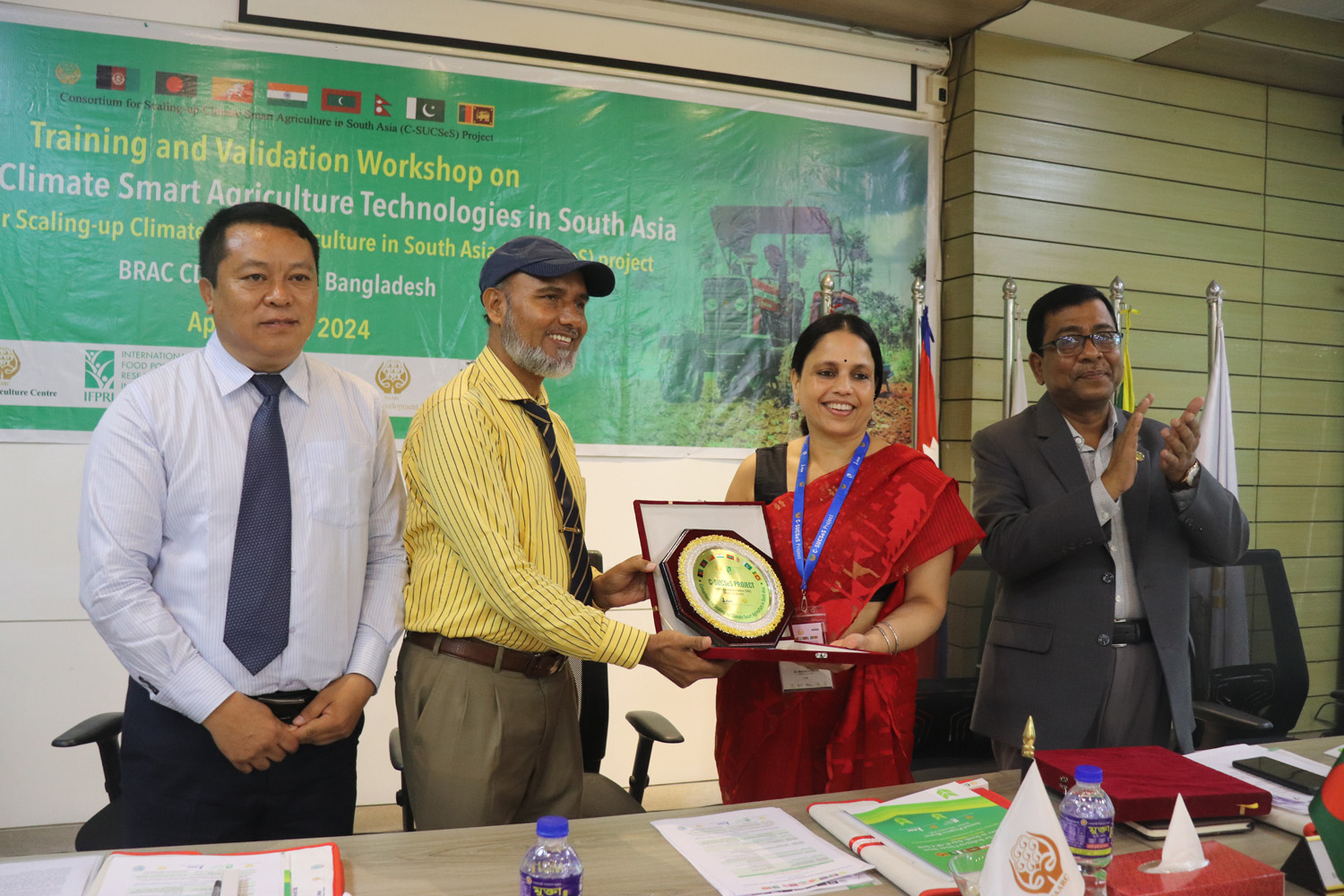
DHAKA, Apr 22, 2024 (BSS)-A three-day training workshop titled "Training and Validation Workshop on Modules of Climate Smart Agriculture Technologies in South Asia" began in Gazipur today.
The SAARC Agriculture Centre (SAC), in collaboration with the International Food Policy Research Institute (IFPRI) - South Asia and Bangladesh Agricultural Research Council (BARC), organized the workshop at BRAC CDM in Gazipur.
A total of 22 scientists, researchers, extension workers and policymakers from Bangladesh, Bhutan, India, Nepal, and Sri Lanka are participating in the workshop, a press release said.
The workshop, being organized under ‘Consortium for Scaling-up Climate Smart Agriculture in South Asia (C-SUCSeS)' of SAARC Agriculture Centre, aimed to address the pressing need for sustainable agricultural practices in the face of climate change.
Through presentations, discussions, and practical sessions, participants will refine 10 modules focusing on Climate Smart Agriculture (CSA) technologies tailored to the specific needs of South Asian countries.
Dr Debasish Sarker, Director General of Bangladesh Agricultural Research Institute (BARI) was present at the opening session of the workshop as chief guest with Director of SAARC Agriculture Centre Dr Md Harunur Rashid in the chair.
Mamata Pradhan, Research Coordinator, IFPRI, and Kinzang Gyeltshen, Regional Programme Coordinator of the C-SUCSeS Project, also spoke.
Dr Debasish Sarker highlighted the pivotal role of Climate-Smart Agriculture (CSA) in enhancing agricultural systems amidst climate change.
Emphasising on its potential for food security and broader development goals, he underscored the CSA's ability to boost productivity, resilience, and mitigate greenhouse gas emissions.
Dr Sarker noted the under-recognised yet impactful CSA practices in Bangladesh and stressed the importance of sharing knowledge through workshops like the upcoming training on CSA technologies in South Asia.
Dr Harunur Rashid said: “We all know that South Asia is one of the world’s most vulnerable regions in terms of climate change impacts.
Agricultural production in the region is severely constrained by extreme climate events whose frequency has increased in the past few decades.
In light of these challenges, scaling up climate smart agriculture practices has become crucial to enable farming communities to adapt to climate change and enhance their resilience to its effects”.
Dr Mamata Pradhan in her remarks said the scale of climate change is large so any adoption or mitigation through CSA can only make a dent if done at scale.
Therefore, she said, collective efforts can make a difference for millions of smallholders and enhance regional cooperation in agriculture-climate-food security nexus.
“And a big component has to be capacity building training at the farm level. So, to make these training programmes more effective, IFPRI in collaboration with SAC and the National Focal points has been working on developing Climate-Smart Agriculture Training Manual,” she added.